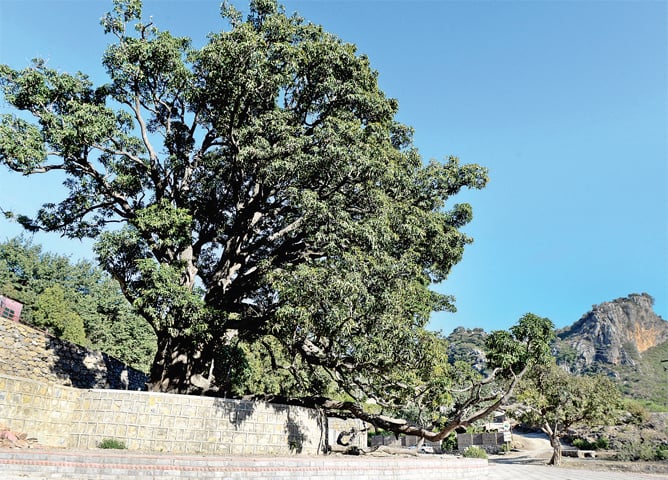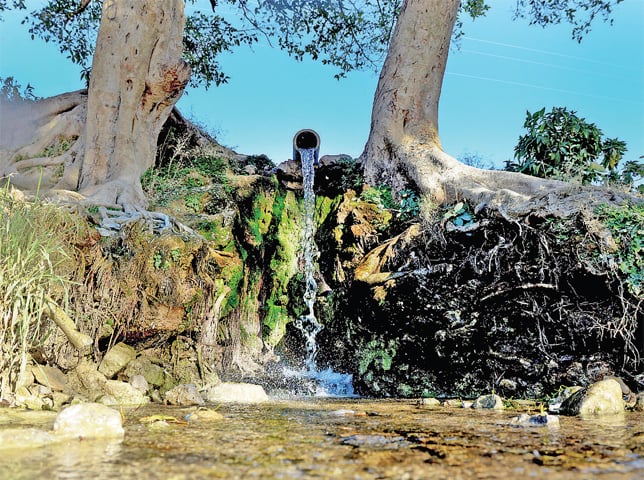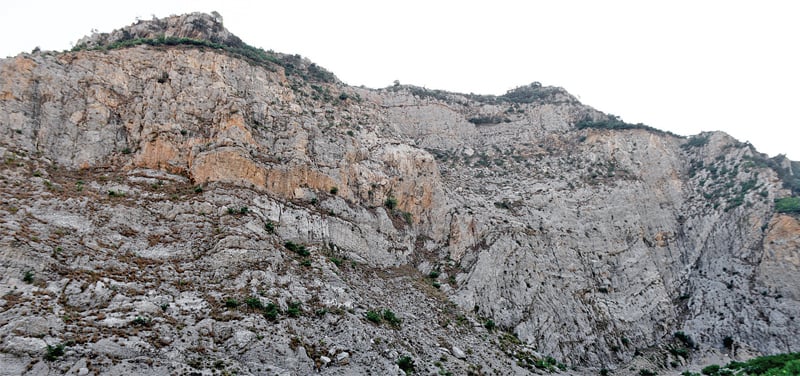Just behind Islamabad’s D-12 sector, a dilapidated road leads to Sadhu ka Bagh, a garden over 2,400 years old at the foot of the Margalla Hills in the Shah Allah Ditta village.
History buffs and nature enthusiasts brave the road for what lies ahead: old banyan trees, ancient meditation caves for Hindu saints and a well of spring water.
The origin of the caves are believed to be either Buddhist or Hindu; some older tales suggest that Hindu sadhus came to the area to meditate, and a garden spread across acres of land near the caves at the foot of the Margallas.

The garden is situated a route once used by caravans to cross the hills and enter the Hazara division; it was considered a safer option amid others, such as the route near Saidpur where caravans could be plundered.
“In the Hindu religion, Lord Ram and his wife Sita and brother Lakshman arrived in the Margalla Hills during their 14-year exile. It was also said that the Pandava brothers and their wife Draupadi crossed the Margalla Hills and arrived in Katas Raj during their exile,” Pakistan Hindu and Sikh Welfare Association President Jag Moham Arora said.
But there are also other tales about the origins of Sadhu ka Bagh. Mohammad Ismail, the owner of a tea stall and Shah Allah Ditta resident told Dawn it was believed that the site was visited by the Mughal emperor Humayun, who stayed at the garden while crossed the hills.

“He ate mangoes, and so the mango plants are from that time,” he said. “Before the partition of the subcontinent, this was a religious site for Hindu and Buddhist sadhus. My grandfather told us about the stupa and temple at the site, but it had disappearedafter the Hindus migrated from here.”
The land was allotted to his family after partition, he said, and it has remained in their possession. The family looks after the Buddhist caves and the old garden, and his father still lives in the cave, he said, adding that there is also an old well of spring water in the area that is used by nearby farms and as drinking water.
“In 2011, the Capital Development Authority (CDA) allocated the space for the reconstruction of the garden, but the work did not begin,” he said. The road from D-12 to the claves was not constructed either.
The CDA did, however, lay the foundation and install a plaque on May 18 that year. But from the barren look of the gardens and the spring, it seems the area is still awaiting a plan for its beautification.

Archaeology and museums department director Abdul Azeem said: “We are working to renovate the old garden and preserve the Buddhist caves, and work on this archaeological site will be launched soon.”
A survey to identify archaeological sites in Islamabad’s Zone IV will be completed soon, he added, after which preservation efforts will begin in collaboration with local civic authorities.
Published in Dawn, December 10th, 2017














































Dear visitor, the comments section is undergoing an overhaul and will return soon.